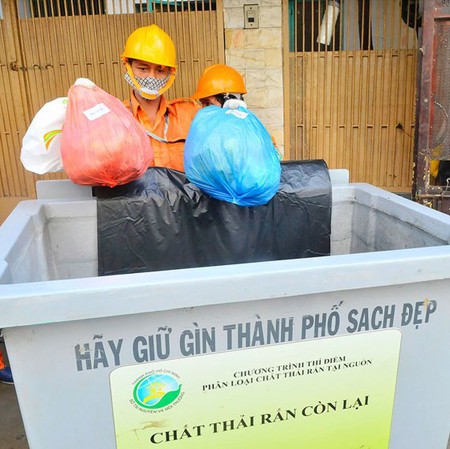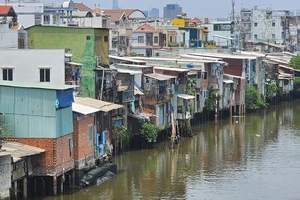
The Office of HCMC People’s Committee yesterday reported that after two years launching the scheme ‘City Dwellers Do Not Litter on Streets and Channels for a Greener City’, the city has received impressive results and been able to erase many hot spots of pollution.
In the upcoming time, besides increasing the awareness of the public about environment protection and collecting practical solutions from the community, HCMC People’s Committee is going to maintain the rate of 100 percent of land pollution locations being tackled.
It will also strive to avoid the appearance of new hot spots, while raising the rate of transforming existing ones into common community spaces. The last goal is to upgrade solid waste processing technologies to reach the proportion of harnessing power from 80 percent and 100 percent of burnt garbage in 2025 and 2030 respectively.
In order to avoid illegal littering, the People’s Committee of all districts are asked to establish their own waste recycling systems and to implement waste segregation and sorting at source (into two groups of ‘recyclable’ and ‘other’) for more effective treatment.
The local authorities are encouraged to model reducing the use of plastic in daily activities and work operations, such as lessening the selection of disposable plastics in serviceware and propagandizing tasks. They are requested to more strictly monitor the environment quality in their area, imposing strict administrative fines when necessary to environmental law breaking and structural encroachment upon discharge gates, drainage tunnels and covers.
Extracts from camera systems will be used as a proof to handle law breaking cases, along with suitable indirect or direct warnings. Corresponding punishments will then be applied, such as fining, community service work.
More innovative methods to carry out dialogues between the authorities and the community, businesses about environmental issues should be introduced to increase effectiveness as well as raising the awareness.
There must be a transparent pricelist for solid waste collection services in each ward and district, plus supporting policies to form cooperatives or legal businesses for waste collectors. There must also be suitable policies to help upgrading garbage collection equipment and vehicles, making use of the Environment Protection Fund.
The evaluation of services for waste collection and transport in accordance with the law should be completed. More modern closed garbage compactors should be built to maintain hygiene in the city.
All successfully transformed hot spots must be monitored closely by corresponding People’s Committee of each district so that pollution there can be permanently erased. Meanwhile, these state units are requested to regularly hold community campaigns regarding garbage collection.
Finally, power harnessed from burnt solid waste should be added to the common electricity grid, while suitable electric substations should be installed to collect this energy kind from garbage processing plants around the city.
























